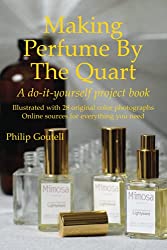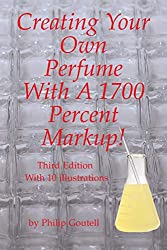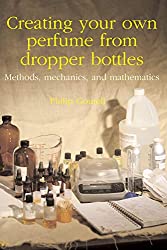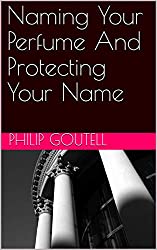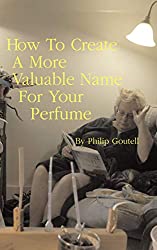How To Write Your Most Important
Business Plan Ever
Write A Business Plan For Yourself
— Before You Need Money
Suppose you needed money for your business, a business you had developed over a period of several years. You know that when you seek investors they will want to see your business plan.
Now suppose, right at the beginning, before you were ready to look for other people's money, you wrote a simple, very simple, business plan. Then, year after year, you revised that plan based on what you had learned during the past year about your market and any new opportunities you had spotted.
Now when you present a "professional" business plan to potential investors you can also show them the simple, perhaps one page long, business plans that have guided you to the point where you are successful enough to attract other people's money. You can show them that, year after year, you have followed these plans and, for the most part, achieved the benchmarks they describe.
Impressive? You bet. Now, from the investors' point of view, they are looking at a person who makes plans and accomplishes what he or she set out to do. Your new, "professional" business plan gains a high level of credibility. Investors can trust your "numbers" because you have given them proof that you can achieve what you project.
What does it take to write a simple one or two page business plan you can hang on your wall and refer to daily, to keep your efforts focused? Here is a simplified format you might find helpful. It is for your benefit, for your business, before you need outside money.
A Simple Business Plan
Part I — Your Circumstances
Investors want to know what kind of person you are, whether you have the background and the ability that makes you a good candidate for being able to carry out your plan. They will also want to know something about executives who are part of your organization — their background and skills — and what your situation is in regards to employees. Are they able? Will they stick with you?
But right now you aren't writing your plan for investors and there's a good chance that, aside from yourself, you have no executives or employees. So you can skip Part I, yes? No!
You are writing this for yourself but what you write here can be a great help to you in your planning, if you are honest.
So let's talk about your "circumstances." What are they and what is important to tell yourself about yourself?
Are you qualified to do the job?
Experts in writing business plans suggest you leave the stuff about yourself until last. Get the rest of the plan down and then write about yourself, how qualified you are to carry out your own program.
But here let's put these qualifications first. After all, this business is about you so it is useful to probe your qualifications, right from the beginning. The qualifications you need to list here are qualifications you need to accomplish the goal set forth in Part II of your plan by following the procedures set forth in Part III of your plan. But let's look at some of the potential "personal circumstance" requirements for launching a successful perfume business.
- Money, enough to get started
- Marketing skills, experience
- Good nose for perfume
- Well organized
- Able to follow a plan
- Money, good at managing it
- Good at working with people
- Good graphic design sense
- Good problem solver
- Can dream big dreams
- Bold and fearless, but not reckless
- Practical but willing to take calculated risks
- Good reputation with others
- Creative problem solver
- Can "sell" ideas and products to others
- Can work effectively in the space available
Now add to this list all their opposites.
These are some of the personal circumstances, character traits and resources that might be required in your business. It is very important that you do a careful and honest self-analysis because if you don't, your business plan will be weak, right from the beginning. (Weak plan = weak results.) You could, by a dishonest evaluation of your own circumstances, develop a business plan that will be impossible to execute.
It is also very, very important to note that if, in your self-evaluation, you find qualities in which you are lacking but will be needed for your success, you can work on them, put your heart and effort into it, and you might discover that through your motivation you can overcome weaknesses and turn them into strengths.
Part II — Your Goal, Carefully Defined
It doesn't hurt to think big as long as you are able to lay out a step-by-step program to reach your big goal. The key is that each step in the ladder must, itself, be defined and workable, by you.
If you have a big goal, keep it in front of you. And include it in your business plan. After all, this one is for your use alone. But while it is good to clarify your big goal, it is important to also set up more moderate steps toward that goal, steps you have the ability to achieve, with the resources you currently have available or can obtain. This gets you started. If you are thinking big, think of this as the first stepping stone toward your big goal.
Your immediate goal
Your immediate goal must be carefully defined. You must be able to look at your business daily or weekly and know whether you are making progress or not. Ask yourself very specifically, "What is it that I want to achieve?" Your goal may look something like this —
- "My goal is to sell 10,000 bottles of my own perfume"
But that's a bit vague in several ways. Let's refine it a bit —
- "My goal is to sell 10,000 bottles of my own perfume between now and this date two years from now"
Getting better. But let's go a step farther —
- "My goal is to sell 10,000 bottles of my own perfume at a wholesale price of $17.50 per bottle within two years"
Now we've got both time and money, two years and $175,000 in sales revenue. The business is beginning to look interesting. You've got a clear target. You've given your perfume a price point. You've given yourself a time in which you expect to achieve your goal. Now comes the heart of the matter — the "how" of the business — the way in which you will achieve your goal — the day to day steps.
Part III — How I Will Do It
Let's keep our discussion focused on perfume and on the goal we set in Step II. You need a plan to sell 10,000 bottles of perfume at a wholesale price of $17.50 each in the next two years. This won't happen by magic. Here you've got to lay out a very practical and realistic plan that will be within your ability to execute.
This plan, to work, cannot just be something you pulled off the internet and copied. This plan must relate to you and your situation and how you will sell perfume. This plan, to be worth writing, must describe the special opening you have discovered that will be receptive to your fragrance. In the vast, highly competitive, universe of people spending money, you have to locate and describe a niche, a profitable niche, in which you can establish your business profitably.
So as you review the list of required actions, don't just plod though and make up stock answers. Give the "selling" issues thought — perhaps days or weeks of thought. Dream up something special. Then try to find a way to put your special concept to the test, in the real world, without spending a lot of money. It's not easy but it is essential.
Research
Before you can lay out the steps you will follow you'll have to assemble some facts. Some of these facts may already be at your fingertips. Whether or not the facts you need are at your fingertips, you'll want to double check ALL the needed facts. In short, you're going to have to do some research. Romy Schorr has a good article on this on the Ladies Who Launch website.
"Research" isn't a dirty word. It simply refers to the process of acquiring the facts you need to create a sound business plan. In our case here, let's look at the "facts," the information that we need to gather up. Then we can look at how we might acquire this knowledge.
Steps we will have to take to reach our goal —
- Develop a fragrance.
- Develop the packaging.
- Produce the product, the packaged fragrance.
- Pay the expenses of having the fragrance produced.
- Develop a distribution plan - where will our perfume be available to consumers?
- Develop a marketing plan - how will we get customers into stores where our perfume is available and get them to buy it?
- Pay the expenses associated with our marketing and distribution plans.
- Develop an administrative system that can control production, marketing and distribution.
- Pay the administrative expenses involved.
- Find a workspace for office and warehouse use — we need to do desk work when not on the road and we need to warehouse inventory not yet in distribution plus have space for returns which we may be able to recycle.
- Pay for the workspace.
Now we need to list the obstacles that must be overcome —
- Can we find an acceptable fragrance?
- Can we find someone to make it?
- Can we afford the bottles, sprays, labels, boxes, graphics, and filling we'll need to produce 10,000 bottles of perfume?
- Can we find stores that will take our perfume? Will they pay for it outright or take it on consignment? Can we place our perfume in enough stores to have the potential to reach our 10,000 bottle sales goal?
- What is a realistic expectation of how many bottles each of our stores will be able to sell?
- Can we develop a marketing plan that will produce the sales we need? How will we convince consumers to buy our perfume? Can we develop a "hook" that will give our product a special appeal?
- Can we finance our marketing and distribution plans?
- Can we set up a simple administrative system to manage our project?
- Can we afford whatever administrative expenses may come up — phone, internet, staff, auto expenses, warehouse, office expense.
- Can we find, or do we have, a suitable workspace from which we can launch this project?
Are you ready now to take pen and paper and start drafting out your plan?
Now it's up to you!
Homemade perfumes generally lack commercial value, regardless of how wonderful they may be, because their creators fail to record how their perfumes were made. To profit from a perfume, to sell it, to sell the rights to it, or have somebody sell it for you, you must be able to make more of it. To make more you need the formula, the record of how the perfume was made: what materials were used and how much of each material was used. While the formula is nothing more than a recipe, a simple piece of paper, it is the key to unlocking your perfume's commercial potential. With the formula in your hand you have the ability to make a few dozen bottles more or, like the celebrities, tens of thousands of bottles. How to create an international production formula for your homemade perfume is a guide to getting you started on the right foot, correctly documenting everything you do as you are doing it, and then using these notes with some basic mathematics to write a simple, accurate, universal formula for your perfume. Writing formulas for your perfumes can change the way you think about them. With your formulas in hand your creations are no longer "here today, gone tomorrow." Now, thanks to your library of formulas, your perfumes become immortal!
While much is written about perfume – the beautiful fragrances... the beautiful bottles – little is available on the "mechanics" of perfume production – the steps that take place on the "factory floor" where a beautiful vision is turned into a finished product, a "ready to sell" perfume. Now you can experience all of these steps, hands on, by making just one quart of your own perfume. If you follow each chapter and do what you are instructed to do, you will end up with from 8 to 64 bottles of your own perfume, depending on the capacity of the bottles you select. Along this "insiders journey," each step is profusely illustrated with professional color photographs and you'll learn — • Exactly what alcohol you'll need and where to get it • Why you'll want (just a little!) water in your perfume • What type bottles you'll need and why you cannot use others • Why you will use a spray and not a cap • How to fill and seal your bottles • How to label your bottles with the correct information so they will be legal for sale • How to select a name for your perfume that will allow you to acquire powerful trademark rights free. If you are a developer of scents you are encouraged to use one of your own for this project. If you are not a scent creator yourself you'll learn how to get a fragrance oil that is exactly right for this project. Online sources are given for all required supplies and materials. Nothing can hold you back from starting your project immediately!
Perfume is famous for the markup it can achieve, even for a middle market fragrance. While "everybody knows" that perfume costs next to nothing to make (not completely true) the making of it is often considered an esoteric secret. "Creating Your Own Perfume With A 1700 Percent Markup!" details how a 3-person company with no experience created their own fragrance in response to a marketing opportunity that was too good to pass up. The book explains exactly what was done to create a fragrance for that opportunity but it is far more than a history of the author's project. "Creating Your Own Perfume With A 1700 Percent Markup!" lays out every step in the process of creating your own perfume, either as a do-it-yourself project – and without the benefit of automated equipment some compromises and workarounds are required – or full bore professional production under your supervision. Either way you will be producing a quality fragrance at a remarkably low cost. Do you have a marketing opportunity that would be wildly profitable if only you could obtain your fragrance at a ridiculously low cost? "Creating Your Own Perfume With A 1700 Percent Markup!" is the guide you need to do it.
Now when you make your own perfume you can make it fully "commercial" meaning you will be creating a product ready for regular, continuous sales to friends, relatives, and the public! If the fragrance you've made has already won praise, why not share it with others? Some might pay you for it and want it for their web stores or retail boutiques! Creating your own perfume from dropper bottles: Methods, mechanics, and mathematics guides you through steps that can turn your hobby project into a perfume business. Discover how close you are now and how little more you must do to take what you made with essential oils and dropper bottles into a business of your own! For an introduction to this book, watch this video.
You can build a perfume business of your own using this business plan as a guide. By following its detailed strategy you learn to identify motivated groups of potential perfume buyers. Members of these groups are near the tipping point of desire for a new perfume. You don't know these people and they don't know you but you know a marketer they trust, one who does not currently sell perfume and might never think of selling perfume were it not for your approach. Here is where you step in with a professional plan, promotion, and perfume to take advantage of this ripe opportunity for mutual profit. Before your first promotion has peaked, you will already be developing a relationship with your next marketing partner. Following this plan, you will gain more and more profit with each new marketing partnership.
A really great name, a special name that is just right for a particular perfume or perfume marketer (or entrepreneur with money to invest!) can be worth a ton of money. But few individuals with great ideas ever manage to cash in on those brilliant ideas. Instead they wait while others "discover" their idea, acquire legal rights to it and make all the money while they are left out in the cold without a penny having been earned for what was once THEIR idea.
If you are struggling to name your perfume and are looking for a name that will have real value, "Naming Your Perfume And Protecting Your Name" will help you weed out low value names and point you to names that have better marketing value plus the potential to become valuable assets in themselves.
If you have a great name you want to protect but no fragrance, "Naming Your Perfume And Protecting Your Name" will guide you through the simple steps you must take to acquire a legal right to that name before someone else grabs it! Best of all, "Naming Your Perfume And Protecting Your Name" shows you how to gain strong legal protection for your name without a lawyer and without spending more than pocket change.
Never had an idea for a product name? Never thought much about perfume? "Naming Your Perfume And Protecting Your Name" may stimulate your interest in a whole new game that, when played well, can make you lots of money without your having to leave the comfort of your home office.
When you name a perfume you create a valuable asset – the name itself. To sell your perfume you want the most effective name possible. But a good name can have value beyond the edge it gives your sales. In naming your fragrance you are creating a trademark and a trademark can have value independent of the product. The value of that trademark can vary. Much depends on how well, in naming your perfume, you follow the trademark "rules." How To Create A More Valuable Name For Your Perfume first helps you develop a name that will be effective in selling your perfume. It then prods you to make use of certain techniques that can turn a good name into a great trademark, strong and valuable. If you have questions about how to protect a name, How To Create A More Valuable Name For Your Perfume will answer many such as:
- Can you protect your name yourself or do you need a lawyer?
- Can you register a trademark without a lawyer?
- What does it cost to register a trademark?
- How do I enforce the rights I have established?
How To Create A More Valuable Name For Your Perfume covers both state, federal, and international protection.
For article updates, etc., add your name to Phil's mailing list.


Philip Goutell
Lightyears, Inc.


